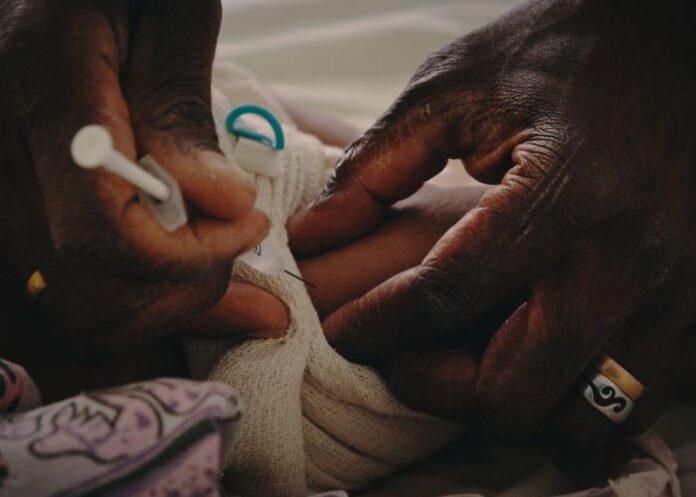African countries have been making steady progress in eliminating tropical diseases, with Togo leading the way in wiping out four such neglected diseases, notes MedicalBrief.
In 2022, Togo became the first country in the world to eliminate four neglected tropical diseases, stamping out Guinea worm disease in 2011, lymphatic filariasis in 2017, sleeping sickness in 2020 and trachoma last year.
These are just a handful among a host of neglected tropical diseases that mostly affect impoverished communities, exacerbated by instability, climate change, and poor living conditions, writes Monique Wasunna in The Conversation.
Every year, 1.7bn people are affected by these diseases, which cause huge suffering, stigma, disability – and sometimes death.
Helping Togo achieve its milestone were door-to-door mass drug administration, healthcare staff training, sustained financing and strong political support.
Other African countries also made progress in tackling neglected tropical diseases in 2022. Benin, Rwanda and Uganda managed to eliminate sleeping sickness. Malawi eliminated trachoma and the Democratic Republic of Congo (DRC) eliminated Guinea worm disease.
In India, Prime Minister Narendra Modi said they had eliminated smallpox, polio and Guinea worm disease, and was optimistic that another neglected tropical disease, visceral leishmaniasis, would be be eradicated.
But the global health community cannot rest on its laurels, because these diseases still exist in some areas.
The insects transmitting many of them have no respect for borders – so no one is safe until everyone is.
The pandemic gravely disrupted control programmes, delaying the achievement of elimination goals by years for some diseases. Some countries also experience ongoing instability and conflicts that hinder control efforts. Sometimes it’s also difficult access their large inaccessible remote areas.
Adequate funding is needed to support drug distribution, training of healthcare staff, and awareness. Funding for research and development is crucial, too, so that the promising innovations emerging from African laboratories and clinical trial sites can reach doctors and patients.
Improved treatments
A major impediment in tackling many neglected tropical diseases is the lack of adequate treatments.
Existing medicines are often not effective enough or are difficult to administer, like regular injections requiring hospitalisation. Some treatments are painful, others are downright toxic.
For some diseases, such as a fungal infection called mycetoma (endemic in Sudan), there are no effective treatments at all – amputation is often the only option.
Because these diseases affect the poorest communities and there is little profit to be made from developing new drugs, they have been historically ignored by traditional pharmaceutical research.
But the abundance of good news in 2022 is cause for optimism: it was an incredible year for visceral leishmaniasis, which is endemic in eastern Africa and is my field of expertise as a physician and specialist in infectious diseases and tropical medicine.
The disease is fatal if left untreated, the deadliest parasitic killer after malaria. People with visceral leishmaniasis suffer from fever, weight loss and intense fatigue. Many are unable to work.
But in September 2022, a shorter, more effective new treatment was announced. Developed with several partners, including Médecins Sans Frontières, this treatment partially removes the need for daily injections.
In June, the World Health Organisation also recommended an improved treatment specifically for people co-infected with HIV and visceral leishmaniasis. It’s great news for the thousands of patients – often young seasonal migrant workers – who respond poorly to standard treatment.
Promising results for a new, one-dose drug for sleeping sickness were also announced last year after clinical studies conducted in the DRC and Guinea by Congolese and Guinean researchers. This medication would be a significant improvement over existing drugs and could open the door to sustainably eliminating the disease.
I still remember when the only drug available to my fellow doctors in the DRC was an arsenic derivative so toxic it killed 5% of their patients.
Collaboration and partnerships
However, research and development efforts alone are not enough. Collaboration and partnerships are key. These are not just buzzwords: past successes in tackling neglected tropical diseases have been rooted in close-knit partnerships between national health authorities, international donors, medical research institutes, universities and industry.
The new treatments mentioned above were all developed thanks to such coalitions. I am the director of the Eastern Africa office of a global non-profit medical research organisation called Drugs for Neglected Diseases Initiative, which took an active role in all these research and development collaborations.
The good news is new partnerships keep being formed. In 2022, we established LeishAccess, a regional collaboration in Eastern Africa working to promote access to visceral leishmaniasis treatments and remove the obstacles still preventing half of patients from accessing the drugs they need.
These advances give me hope. These extraordinary efforts will eventually pay off. I believe that in a not-so-distant future, people will stop dying from leishmaniasis, and will be cured, thanks to simple oral drugs.
Many gaps remain, with millions of people still suffering from diseases that could be cured. And neglected tropical diseases that are slowly disappearing can suddenly return with a vengeance, fuelled by conflicts, economic crises, increased poverty, or climate change.
But if sustained investment is coupled with African political leadership and scientific excellence, there’s good reason to hope for the elimination of neglected tropical diseases on the continent.
• Monique Wasunna is a researcher at the Kenya Medical Research Institute
See more from MedicalBrief archives:
Leading health journals plead for climate change help in Africa
Repurposing of orphan drug to control transmission of African trypanosomiasis
Poorer African nations rank high in disease-fighting league table, but SA languishes
SA still in the danger zone for neglected tropical diseases — ALMA
UCT’s H3D a key partner to support drug discovery projects in Africa

